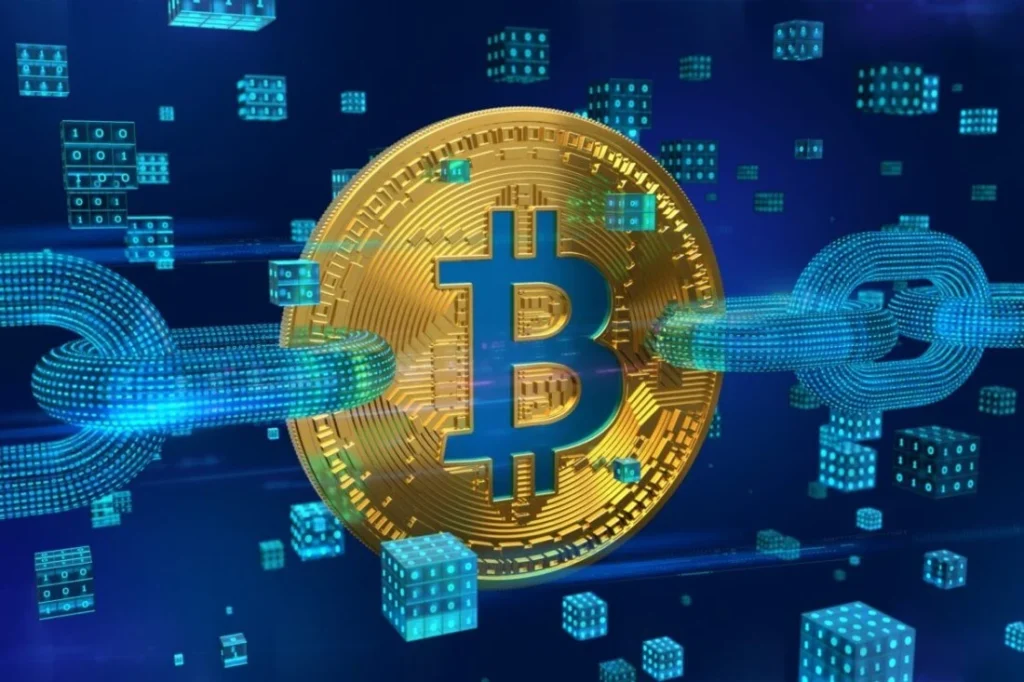When most people hear the term blockchain, they think of Bitcoin and other cryptocurrencies. While blockchain technology is indeed the backbone of cryptocurrencies, its potential extends far beyond just digital currencies. In fact, blockchain is already making a significant impact across various industries, helping improve security, transparency, and efficiency in ways that were not possible before. In this blog post, we’ll explore some of the exciting real-world applications of blockchain technology beyond Bitcoin.

Content
What is Blockchain?
Before we dive into the applications, let’s quickly review what blockchain is. At its core, blockchain is a digital ledger that records transactions across a network of computers. Each transaction, or “block,” is linked to the previous one, creating a chain. This chain is decentralized, meaning no single entity controls it. Blockchain is secure, transparent, and cannot easily be altered, which makes it ideal for storing important information in a way that everyone can trust.
1. Supply Chain Management
One of the most promising uses of blockchain is in supply chain management. Supply chains involve many different players, from manufacturers to distributors to retailers. Tracking the movement of goods across all these stages can be complex and prone to mistakes or fraud.
Blockchain helps by providing a transparent and immutable record of every step in the supply chain. Each time a product moves from one place to another, the transaction is recorded on the blockchain. This makes it easy to track the origin of products, verify their authenticity, and ensure that they haven’t been tampered with. For example:
- Food industry: Blockchain can track the journey of food from farm to table, helping to ensure food safety and reduce fraud.
- Luxury goods: It can authenticate luxury items like watches or handbags, ensuring that consumers are getting genuine products.
2. Healthcare
In healthcare, data security and patient privacy are top priorities. Blockchain offers a way to securely store patient records and ensure that only authorized people can access them. This can make healthcare systems more efficient and reduce fraud.
Some of the ways blockchain is used in healthcare include:
- Medical records management: Blockchain can be used to store patient data, allowing doctors and healthcare providers to securely share information while keeping it safe from tampering or unauthorized access.
- Drug traceability: Blockchain can track the production and distribution of pharmaceuticals, reducing the risk of counterfeit drugs entering the market.
3. Voting Systems
Traditional voting systems have been criticized for being vulnerable to fraud and manipulation. Blockchain offers a way to securely record votes and ensure the integrity of elections. Since blockchain is tamper-resistant and transparent, it can help verify that votes are accurately counted and that no one can alter the results after the fact.
By using blockchain, governments can create a digital voting system that is safe, efficient, and trustworthy, potentially increasing voter turnout by making the voting process more accessible.
4. Financial Services and Payments
While blockchain is most famous for enabling cryptocurrencies like Bitcoin, it also has real-world applications in traditional finance. Financial institutions are using blockchain to improve the speed and transparency of transactions.
Some examples include:
- Cross-border payments: Blockchain can make international money transfers faster and cheaper. Traditional cross-border payments can take several days and come with high fees. With blockchain, these transactions can be completed in a matter of minutes, reducing costs and delays.
- Smart contracts: These are self-executing contracts with the terms directly written into code. They automatically enforce the agreement when certain conditions are met. This can be used in a variety of areas, including insurance claims, loan agreements, and business transactions.
5. Real Estate
Buying and selling property can be a complicated process, involving many intermediaries, such as brokers, agents, lawyers, and banks. Blockchain can simplify real estate transactions by providing a transparent and efficient way to manage property titles and contracts.
Blockchain could be used to:
- Digitally record property ownership: By storing ownership records on a blockchain, it becomes easier to prove who owns a property and transfer ownership when it’s sold.
- Smart contracts for property deals: Just like in financial services, smart contracts could automate and speed up the process of transferring property from one owner to another.
6. Intellectual Property and Copyrights
In the world of intellectual property, it’s crucial to protect creators’ work and ensure they receive the credit and compensation they deserve. Blockchain can help by providing a secure way to store and track the ownership of creative works, such as music, art, and inventions.
Some ways blockchain can be used for intellectual property include:
- Digital rights management: Creators can use blockchain to register their works, ensuring that they are credited whenever their work is used.
- Royalties tracking: Blockchain can help track the usage of music, books, and art, ensuring that creators get paid fairly whenever their work is consumed.
7. Energy and Utilities
The energy sector is another industry that stands to benefit from blockchain technology. Blockchain can be used to create more efficient and decentralized energy markets, allowing individuals and companies to trade energy directly.
For example, in a peer-to-peer energy trading system, homeowners with solar panels could sell excess energy directly to their neighbors using blockchain. This could lead to more sustainable energy use, lower costs, and less reliance on large energy providers.
8. Identity Management
Identity theft is a major issue in the digital world, and blockchain can help by providing a secure way to manage identities online. With blockchain-based identity management systems, individuals can control their own personal data and choose when and with whom to share it.
For instance, blockchain could be used to create digital IDs that are secure, easily accessible, and resistant to fraud. This could be used for online services, government programs, and even travel (e.g., digital passports).
Conclusion
Blockchain technology is not just about Bitcoin and other cryptocurrencies. It has the potential to revolutionize many industries, from healthcare to supply chains to financial services. By offering a secure, transparent, and efficient way to store and transfer data, blockchain is changing the way we think about trust, security, and transactions.
As blockchain continues to evolve, we can expect to see even more creative and innovative applications that make our world more connected, efficient, and secure. Whether it’s enhancing voting systems, protecting intellectual property, or creating decentralized energy markets, blockchain is proving to be much more than just a tool for digital currencies—it’s a technology that can shape the future.

James has been a crypto enthusiast for a year. He’s an avid watcher of all the latest developments in the space, and enjoys predicting what will happen next with his favorite coins.
He lives in his hometown of New York City with his wife and two sons. His hobbies include watching movies, playing basketball, and reading about how to survive disasters that may occur from climate change or an asteroid impact!


